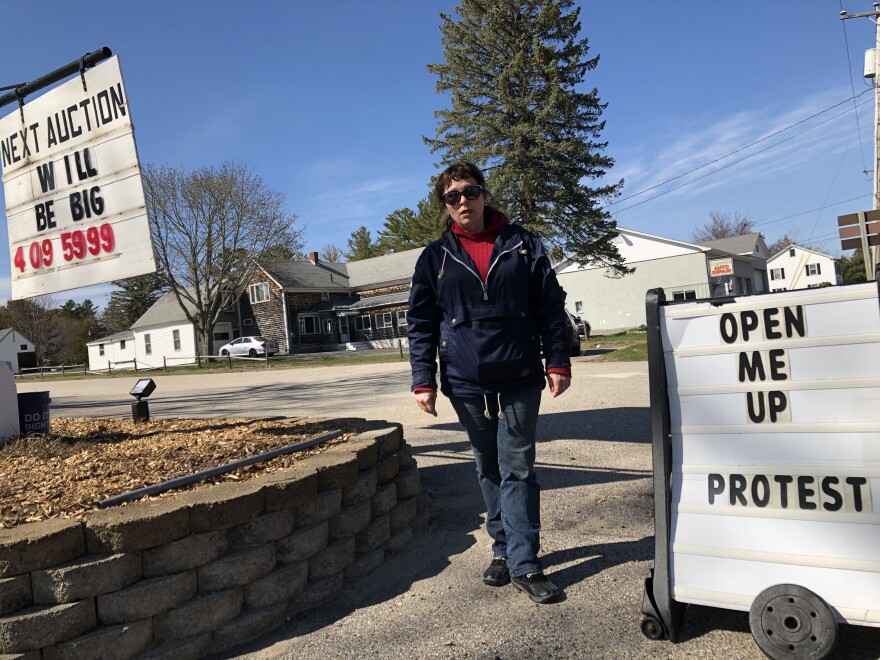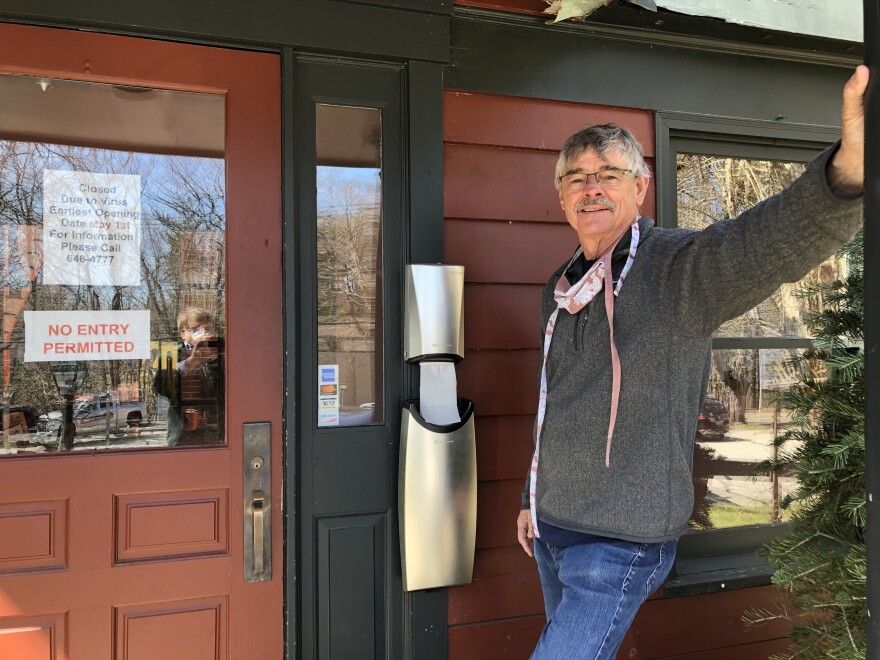Memorial Day, the traditional start to the summer tourist season, is less than a month away, and pressure is mounting to get Vacationland back in business. The state is taking a cautious approach to reopening during the ongoing pandemic, and the tourism industry is responding with outrage and optimism.
Coastal York County could be considered the gateway to summer in Maine. Its hotels, restaurants and roadside attractions are a lynchpin for the state’s $6 billion tourism economy — an economy that’s expected to shrink considerably this year.
"No retail until June 1? Never mind the hotels? The resorts? I don't know how these people are going to survive," says Bonnie Heptig, who owns Bo-Mar Hall Antiques and Collectibles on Route 1 in Wells, where she rents tables to dozens of people who bring in their collections for sale.

Heptig says she has installed plexiglas sneeze shields and arranged tables for adequate social distancing. She's frustrated by what seem, to her, arbitrary government standards for closing and re-opening that closed her shop’s doors but that allowed big-box stores to avoid a shutdown, and now permit hair stylists and barbers to resume operations too.
"I can get a haircut — the lady's going to be right next to me — but we can't walk around in my building if anybody dares come? Why can I go to the supermarket, why can I go to the Dairy Queen? Lowe's? Why do some people get to make a living while others can't?"
With Maine experiencing one of the lowest COVID-related mortality rates in the nation, frustration with restrictions is rising.
And there are pockets of outright defiance, as with Bethel brew pub owner Rick Savage, who rejected the governor's shutdown order and opened last Friday to a long line of customers.

"We did 10,000 meals out of this restaurant and donated them,” says Savage. “We did our part. And now it's time for us to get back in business, and not just for me, for a lot of people." Savage now faces multiple citations and a suspension of his food license.
Gov. Janet Mills says protecting public health and reopening the economy is a delicate balance and the state has to brace for economic losses.
"Inevitable losses. The whole country is facing this. At the same time, everybody recognizes that while you want to open up your favorite restaurant, you want to open up the local Airbnb and the lodging and campgrounds sooner, nobody wants to get sick,” Mills says. “And nobody wants their customers to get sick or die because of contact at your facility. That's the balancing act here."
Tina Hewett-Gordon manages the Nonantum Inn, a 130-year old hotel in Kennebunkport. "The decision, the announcement that was made is already devastating the entire summer."
Hewett-Gordon says Mills' order was a triple whammy: It bars out-of-state guests until July, it asks them to quarantine themselves for the first two weeks of their stay, and it restricts large groups — like the kind you'd find at a seaside wedding.
"Obviously everyone from out-of-state that's theoretically not allowed here has access to the same information, and cancellations are flooding in,” she says. “And as a property, since I can't have gatherings of more than 50 people in July and August, we've had to cancel every wedding."
That's 20 full-scale events put off until next year. And there's a ripple effect for the area's wedding industry in general — on caterers, photographers, musicians, florists and offsite restaurants.
"I mean if I have to, I'll borrow money and close for a year," says Jonathan West.

West opened his restaurant and performance space in Ogunquit in 1976. He thinks the food service industry was unfairly cast as a potential virus spreader. He says it's unlikely that he'll close, though: with some help from federal emergency funds, he's kept most of his year-round staff working through the shutdown — mostly on projects to match what he expects will be the strange new world of fine-dining-at-a-distance, starting as early as June.
"I've got two of my people making masks out of tablecloths, so that's pretty nice, cause now they can wear a mask and have the same table cloth that matches,” he says. “We decided a mask is just going to be part of the uniform, that's all."
Staff are redesigning each room to bring the restaurant's capacity down to 40 percent of where it was. West says soon public occupancy ratings won't be regulated against fire danger, but against viral dangers.
"We've done our floors, and we've moved our tables. We're about ready to tape the bar so there's two seats together and then six feet, two seats together and then six feet. It's a very small bar so we'll only get eight people at it, but that's fine."
Dining room setup stations will be a thing of the past, West says, with gloved waiters moving food directly from kitchen to table. All bathroom systems are now touchless. And he's trying to get a loan for a newly-sought-after kind of restaurant equipment: a full-body thermal scanner to test everyone who comes through the entry for tell-tale fevers. He expects the item to cost more than $15,000 and that, overall, the pandemic will put a six-figure hit on the business. But he says that even if the COVID-19 virus is wrestled under control, new pathogens will inevitably appear, so it's still a wise investment — the scanner, the renovations, everything.
"This isn't going away. A great friend wrote me in an email the other day and said 'you can't think outside the box any more, you have to have a new box.'"
After 43 years in business, West says he is ready to throw the old box away and start completely fresh.




